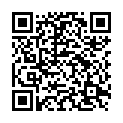|
|
|
| Module code: WIBASc355 |
|
|
1V+1U+2PA (4 hours per week) |
|
5 |
| Semester: 3 |
| Mandatory course: yes |
Language of instruction:
German |
Assessment:
Written exam for Computer Science (40%) + project for Programming (60%)
[updated 13.09.2018]
|
WIBASc355 (P450-0053, P450-0054) Industrial Engineering, Bachelor, ASPO 01.10.2013
, semester 3, mandatory course
|
60 class hours (= 45 clock hours) over a 15-week period.
The total student study time is 150 hours (equivalent to 5 ECTS credits).
There are therefore 105 hours available for class preparation and follow-up work and exam preparation.
|
Recommended prerequisites (modules):
None.
|
Recommended as prerequisite for:
WIBASc-515 Automation Engineering
WIBASc-525-625-FÜ16 Current Topics in (Business) Informatics (Seminar)
WIBASc-525-625-FÜ19 Simulation II
WIBASc-525-625-FÜ23 Simulation
WIBASc-525-625-FÜ34 Contemporary Issues in Business Information Systems (Seminar)
WIBASc-525-625-Ing22 Automation Technology
WIBASc-525-625-Ing27
WIBASc455 Business Informatics / Operations Research
[updated 19.01.2022]
|
Module coordinator:
Prof. Dr. Daniel F. Abawi |
Lecturer:
Prof. Dr. Daniel F. Abawi
[updated 20.01.2020]
|
Learning outcomes:
Principles of Computer Science:
After successfully completing this module students will:
_ have basic knowledge of computer science, with a focus on _practical computer science_
_ understand the basic structure of programs
_ be able to explain how to transform a business problem into an algorithm, from modeling to its technical implementation
Programming:
After successfully completing this module students will:
_ be able to independently provide solutions for computer science tasks
be proficient in the object-oriented language Java, as well as UML for modelling and implementing a business scenario
[updated 13.09.2018]
|
Module content:
Principles of Computer Science:
1. History and sub-areas of computer science
2. Storing and interpreting information / encodings
a. Positional number systems
b. Computing with dual numbers
c. Data compression
d. Fault-tolerant codes
3. From program to machine program
4. Programming languages
a. Data types and operators
b. Control structures
c. Propositional logic
d. Object orientation
5. Data structures and algorithms
6. Computer networks and the WWW
7. Software engineering
a. UML diagrams (static and dynamic behaviour of information systems)
b. Process models
Programming:
Basics
1. Objects and classes
2. Data types and basic operators
3. Class definitions and inheritance
4. Object interaction
5. Control structures
6. Using class libraries
7. Class design
8. Structured design of simple programs
9. Elements of software engineering
10. Documentation and tools for teamwork
11. Case study and project
[updated 13.09.2018]
|
Teaching methods/Media:
Principles of Computer Science:
Projector, slides, exercises, lecture notes
Programming:
Projector, slides (lecture notes), independent and guided exercises and sample solutions. Only open source software will be used.
[updated 13.09.2018]
|
Recommended or required reading:
Principles of Computer Science:
_ Herold, H.; Lurz, B.; Wohlrab, J.: Grundlagen der Informatik, Pearson Studium Verlag, 2011
_ Hartmut, Ernst: Grundkurs Informatik, 4. Auflage, Vieweg+Teubner Verlag, 2008
_ Rechenberg, P./ Pomberger, G.: Informatik-Handbuch, 4. Auflage, Carl Hanser Verlag, 2006
Programming:
_ Ullenboom, Christian: Java ist auch eine Insel, 10. Auflage, Galileo OpenBook 2011
_ Barnes, D.J., Kölling, M.: Java lernen mit BlueJ, 4. Auflage, Pearson Studium Verlag, 2009
_ Herold, H.; Lurz, B.; Wohlrab, J.: Grundlagen der Informatik, Pearson Studium Verlag, 2011
_ Rechenberg, P./ Pomberger, G.: Informatik-Handbuch, 4. Auflage, Carl Hanser Verlag, 2006
_ Your own lecture notes.
Further recommendations regarding literature or for example, web articles will be made by the lecturer in the course.
[updated 13.09.2018]
|

